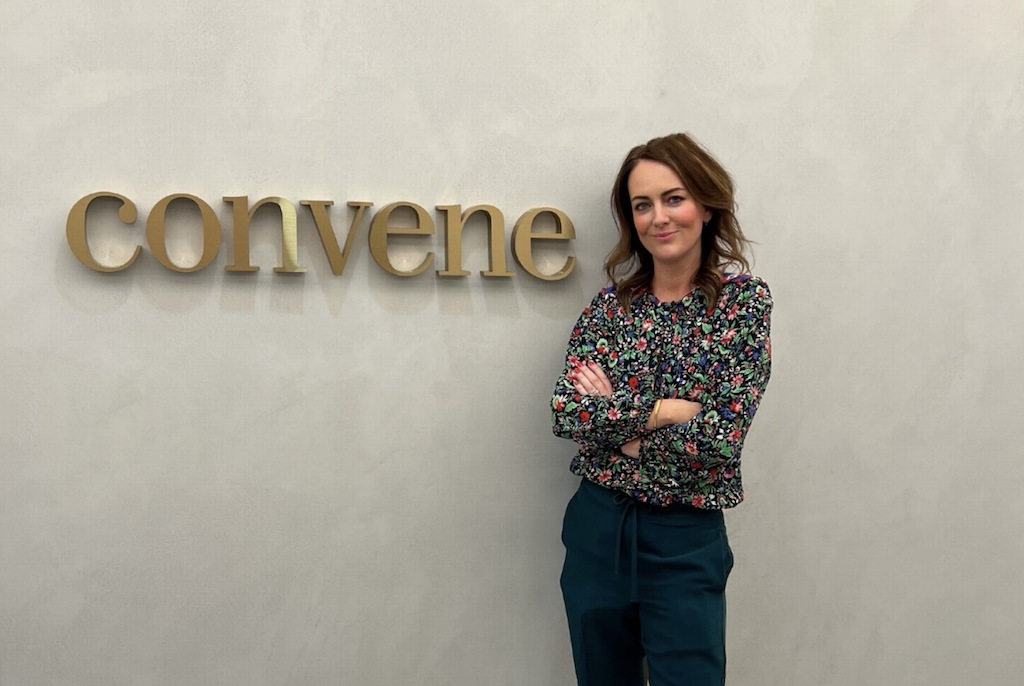
As we gear up for GCUC UK, we’re thrilled to kick off our blog with a spotlight on Niamh Martin, Managing Director at Convene UK, our venue for GCUC UK London this year. With almost 20 years of experience in hospitality, Niamh brings a wealth of knowledge and insight to her role, having previously reimagined hospitality at Selfridges Group. Now, seven months into her role at Convene, Niamh has been instrumental in shaping the future of how we think about workspace, from large conference halls to flexible on-demand meeting rooms.
In this interview, Niamh reflects on the most exciting aspects of her journey so far and shares her thoughts on the evolving role of the office in a post-pandemic world. From fostering collaboration and connection in distributed workforces to the “social club-isation” of workspaces, Niamh offers an in-depth perspective on how coworking and flex office providers are leading the way.
Keep reading to learn more about Niamh’s experience, the challenges she’s faced, and what she’s most excited about as we gather industry leaders at GCUC UK.
To kick off the blog, Niamh, we’d love to hear more about you and your background. You’ve been MD at Convene for 7 months now—how has the experience been so far? What has been the most exciting part, and what challenges have you faced along the way?
I have been involved with hospitality in many forms throughout my nearly 20-year career. My most recent role before Convene was with Selfridges Group, where I was responsible for reimagining hospitality in the retail sector, including the role both experiences and F&B play in bringing people back to the physical space in a digital world. My position as UK Managing Director for the Convene portfolio of brands is quite similar; our suite of products – from large conference halls to smaller on-demand meeting rooms, and flexible WorkPlace Membership – are designed to bring people together, making the commute “worth it” for a day at work. Office culture is at an inflection point, making it an exciting time to have joined the industry and I’m proud to be working alongside such an incredible team to shape the future of work.
Now let’s get into it…
The role of the office is evolving from simply being a place to work to a productivity tool that brings people together. How do you see this shift impacting coworking and flexible workspaces?
Convene believes the future of meetings, events, and work are inextricably linked – bringing people together in today’s increasingly distributed workforce is essential for connection, collaboration, and company culture. As a result, the right working environment is crucial. Coworking and flexible office solutions not only offer greater variety in space types, catering to different styles of work, but they also provide a better overall experience. With flight-to-experience winning the “return-to-office” battle, organisations of all sizes are moving to outsource the delivery of a hospitality-driven workplace to flex office providers.
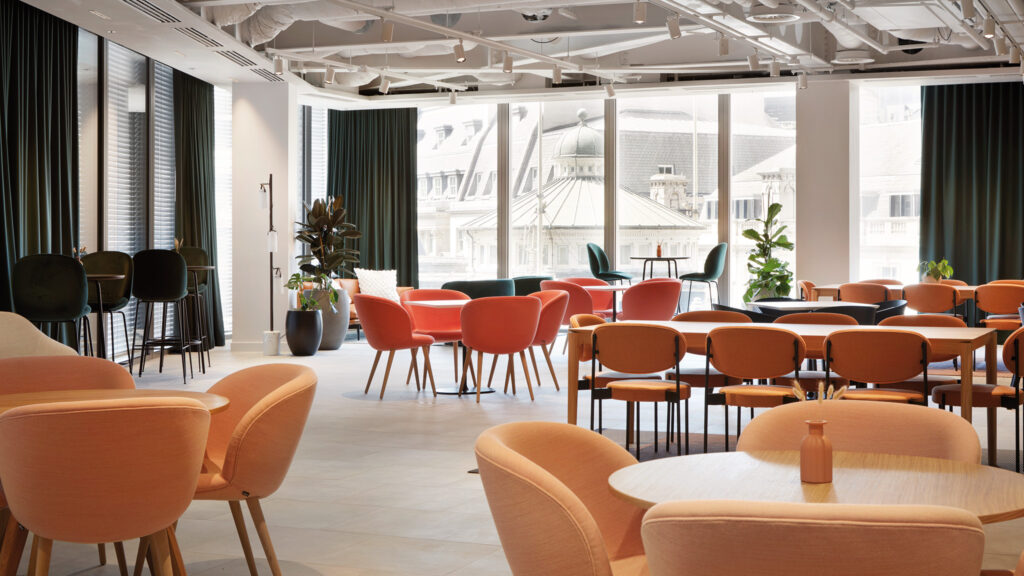
In your experience, how are coworking or flex providers uniquely positioned to foster connection and collaboration within this evolving office landscape?
Where and how you work is a reflection of your company culture. Flex office providers that focus on cultivating warm, welcoming environments, and that lead with hospitality, create a space for members that inspires, engages, and empowers them to do their best work. With thoughtful design and attention to detail, flex providers also offer a place where team members want to be, allowing for spontaneous brainstorming sessions or the impromptu spark of a new idea over a freshly brewed cup of coffee.
The concept of “social club-isation” and “hotelfication” is gaining momentum in coworking spaces. Can you elaborate on what these trends look like and how coworking operators are leading the way in creating these high-touch, community-driven environments?
Flexible office is now mainstream in a way it never has been before, with organisations of all sizes and industries utilising its services. And it’s because flex providers have always been at the forefront of evolving workplace wants and needs.
Convene was founded in 2009 under the thesis, “What if you ran an office building like a hotel?” We were 15 years ahead of the curve in bringing hospitality into traditional workplace settings and post-pandemic there has been widespread adoption of this notion. It’s no longer enough to offer flexible space, members expect a full hospitality experience – F&B, on-site support, and engaging community programming. In a December 2023 LinkedIn post, Convene CEO Ryan Simonetti predicted the “social club-isation” of the office would take off in 2024 – and he’s right, people are now looking to their workplace to fill a social need for human connection. But they’re doing so because flex office providers have already proven their ability to deliver on this front.
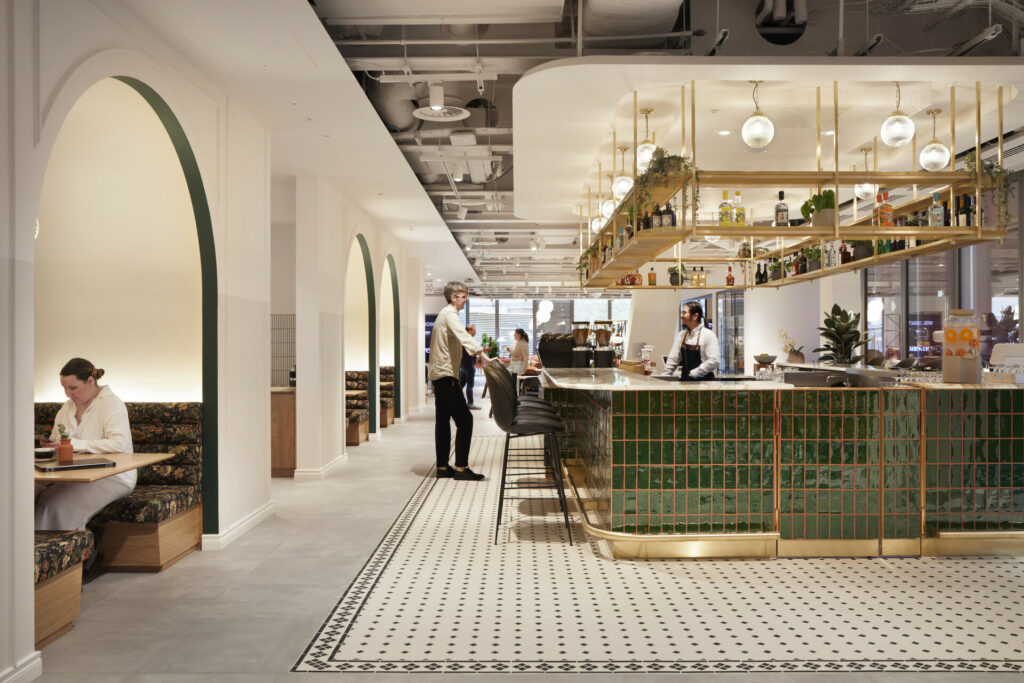
Flex office solutions are now seen as “table stakes” for landlords, as noted in a recent BisNow article. What advice would you give to landlords looking to go beyond simply offering flexible spaces and instead truly activating and monetising those environments?
In order to drive tenant attraction, retention, and engagement, landlords need to provide a hospitality-driven workplace – a fully activated, elevated, and amenity-rich office experience. The best way to do this is to partner with an outsourced provider that has a proven track record of amenitising, monetising, and energising assets. Anyone can design a flex office or amenity centre, but to truly make it a success you need an expert in the hospitality industry to bring the space to life.
With coworking spaces becoming more of a necessity for landlords, how can operators and property owners work together to thoughtfully amenitise and energise spaces that attract and retain tenants?
One of the most underutilised areas in many office buildings is the lobby. Partnering with a flex operator to activate this area can transform the arrival experience for tenants and create a “social hub” outside of the office. For example, offering a unique F&B amenity in the lobby not only energises the space, but also keeps tenants in the building who may have otherwise gone out for their morning coffee or lunch and creates an additional revenue stream – Convene recently did this with the repositioning of the Sancroft building in St. Paul’s London to design and operate a premium lounge that serves as a meeting place for all tenants.
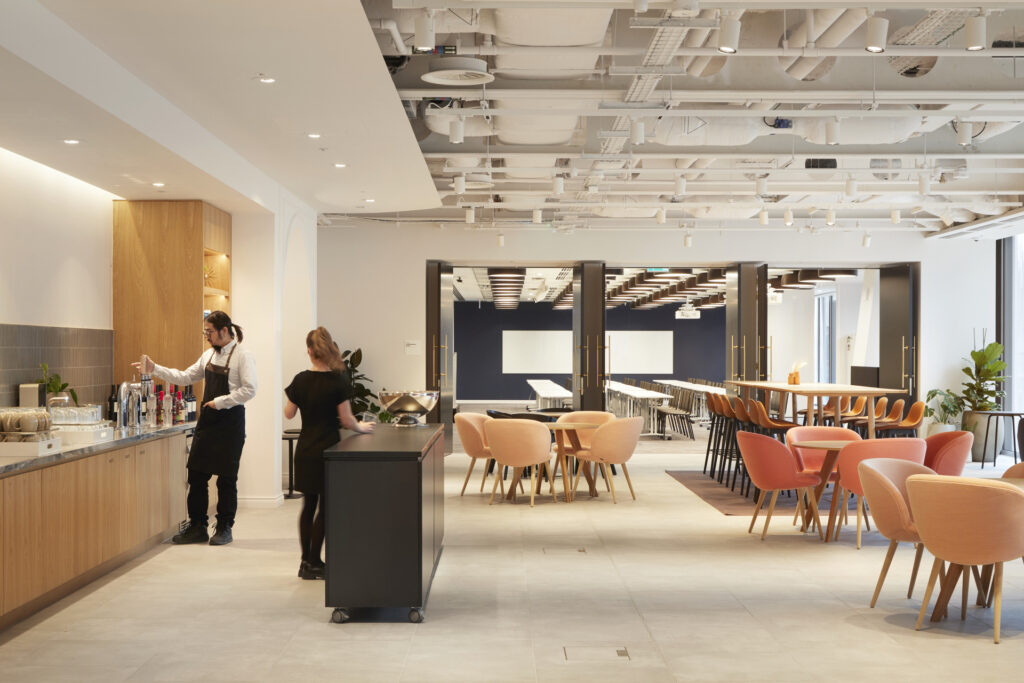
The “hotelfication” or “social club-isation” of the office is often associated with premium amenities and elevated services. How do you see this trend evolving in the coworking sector, and what role do you think it will play in the future of workspace design?
The “hotelification” of the office goes beyond amenities and services, it’s also about space types; most hotels offer some sort of event room that can double as a hall for a corporate meeting or conference. The core business for the Convene portfolio of brands is meetings, and our CEO once famously said, “the workplace of the future is a meeting space” – that’s become increasingly true as landlords look to add well-serviced, purpose-built meeting and event spaces to serve the needs of their tenants. While this has been at the heart of the Convene model for 15 years, we are starting to see other flex operators expand into meetings and I think there will be a material impact on how office floor plans are laid out going forward, with collaborative spaces at the forefront.
As someone deeply embedded in the coworking industry, what do you think are the key factors that will differentiate successful coworking spaces in the next few years?
Location, hospitality, and evolving your product based on client needs and feedback will be key in developing and maintaining successful flexible office spaces. Operators need to continue to invest in their locations, updating spaces to reinvigorate the work environment and maintain a cutting-edge technology infrastructure. The people aspect is also a key differentiator – your team interfaces with members day-in and day-out, it’s important to have a professional and polished team that can build rapport with your clients. Without the people, you would have nothing more than a beautiful yet empty office space.
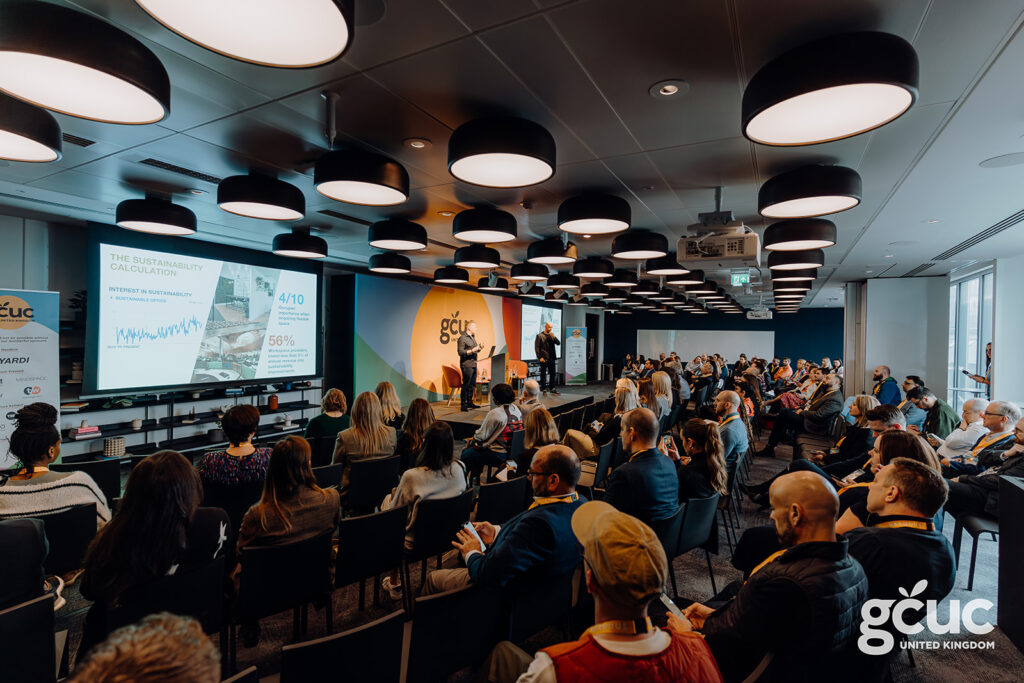
Looking ahead to GCUC UK, what are you most excited about discussing or learning from other industry leaders during the event?
I’m so excited for the upcoming GCUC UK event and am especially looking forward to two discussions: wellbeing in the workplace and the GenZ roundtable. Wellness is a topic that I am passionate about and I’m curious to hear various thoughts on how flex operators can promote wellbeing strategies within their spaces. I also believe that in order to succeed you must continue to listen to your clients and evolve your product, and it will be interesting and valuable to hear from the next generation what they really want from their workplace.
Join us at GCUC UK in London on Thursday, 10 October, to share and collaborate on making this industry continue its authentic and real growth.
We are the community builders, innovators, and differentiators in the market. We can’t stop now.